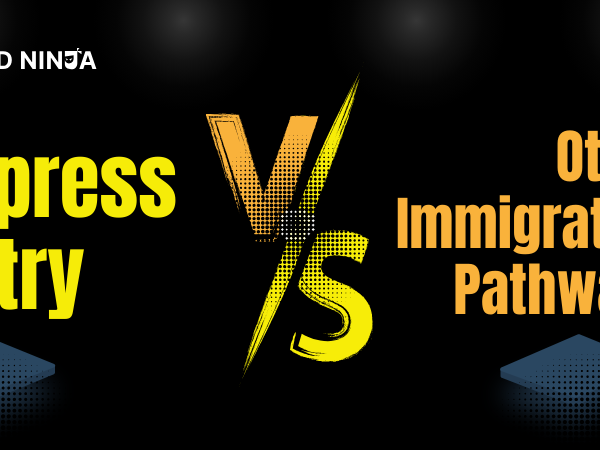It’s important to know every detail about your aspiration. If you wish to go to Canada and study there, you must be aware about the Canada universities for MS, MS in Canada process, MS in Canada cost etc. So, this article will provide you with all the details including universities in Canada for MS.
Also Read: How Long is Masters Degree in Canada? Top Universities to Study Masters
Canada Universities for MS
Canada is home to many excellent universities offering Master’s degree programs in a variety of fields. Here are some top universities in Canada for MS programs:
# University of Toronto: The University of Toronto is a globally renowned university, consistently ranked as one of the top universities in Canada and the world. It offers a wide range of Master’s degree programs in fields such as engineering, computer science, business, health sciences, and humanities.
# McGill University: Located in Montreal, McGill University is another top-ranked university in Canada, known for its research excellence and diverse student body. It offers Master’s degree programs in fields such as science, engineering, medicine, law, and arts.
# University of British Columbia: The University of British Columbia, located in Vancouver, is another top university in Canada known for its research strength and innovation. It offers Master’s degree programs in fields such as engineering, computer science, business, health sciences, and arts.
# University of Waterloo: The University of Waterloo is a renowned university in Canada known for its focus on innovation and entrepreneurship. It offers Master’s degree programs in fields such as engineering, mathematics, computer science, business, and science.
# University of Alberta: The University of Alberta, located in Edmonton, is a leading university in Canada known for its research excellence and strong programs in the sciences and engineering. It offers Master’s degree programs in fields such as engineering, science, business, and humanities.
Other top universities in Canada for MS programs include the University of Montreal, University of Calgary, and Simon Fraser University. It’s important to research each university’s programs and faculty to determine which university and program are the best fit for your academic and career goals.
MS in Canada
Canada is a popular destination for international students seeking to pursue a Master’s degree. With its high-quality education system, diverse student population, and welcoming culture, Canada offers many advantages for those looking to advance their academic and professional careers. In this article, we’ll explore some of the benefits and considerations of pursuing an MS in Canada.
Benefits of Pursuing an MS in Canada
# High-Quality Education: Canadian universities are known for their academic excellence and high standards of education. Many universities in Canada are ranked among the top universities in the world, offering students access to world-class faculty, cutting-edge research, and state-of-the-art facilities.
# Diverse Student Population: Canada is a welcoming and multicultural country, with a diverse student population from around the world. Studying in Canada offers students the opportunity to learn from and collaborate with people from different cultural backgrounds, expanding their horizons and enhancing their education.
# Employment Opportunities: Canada offers many employment opportunities for international students after graduation. In most cases, international students are eligible to apply for a work permit after completing their studies, allowing them to gain valuable work experience and contribute to the Canadian economy.
# Affordable Education: Compared to other countries, Canada offers affordable education options for international students. Tuition fees and living costs in Canada are lower than in many other countries, making it a cost-effective option for pursuing a Master’s degree.
Also Read: How to Track Canada Visa Application? Let’s Get the Canada Student Visa Details!
Considerations for Pursuing an MS in Canada
# Language Proficiency: Most universities in Canada teach in English or French, so it’s important for international students to have a good command of one of these languages. Students who do not speak English or French fluently may be required to take language proficiency tests such as TOEFL or IELTS.
# Visa Requirements: International students require a study permit to study in Canada, which must be obtained before arrival. Students must meet specific requirements and provide proof of financial support, academic transcripts, and other documents to obtain a study permit.
# Weather: Canada is known for its cold and snowy winters, which can be a challenge for students who are not used to such weather conditions. Students should be prepared for the weather and make necessary arrangements, such as buying appropriate clothing and winter gear.
# Cost of Living: While Canada offers affordable education, living costs can still be a concern for some international students. It’s important to research the cost of living in the city where you plan to study and budget accordingly.
MS in Canada Cost
The cost of pursuing a Master’s degree in Canada varies depending on the university, program, and location. Here are some estimated costs for pursuing an MS in Canada:
# Tuition Fees: The tuition fees for international students pursuing an MS in Canada can range from CAD $6,000 to CAD $60,000 per year, depending on the university and program. Generally, STEM programs tend to have higher tuition fees than humanities or social sciences programs.
# Living Expenses: The cost of living in Canada varies depending on the city and region. On average, international students can expect to spend around CAD $15,000 to CAD $20,000 per year on accommodation, food, transportation, and other expenses.
# Health Insurance: All international students in Canada are required to have health insurance, either through the university or through a private insurance provider. The cost of health insurance can vary from CAD $600 to CAD $1,200 per year.
# Other Fees: International students may also be required to pay for other fees such as application fees, student association fees, and textbooks.
It’s important to note that these costs are estimates and can vary depending on individual circumstances. It’s recommended to research the specific costs for the university and program of interest and to budget accordingly. Some universities in Canada also offer scholarships, bursaries, and other financial aid options for international students to help offset the cost of pursuing an MS.
Also Read: Masters Courses in Australia: Let’s Check Out the Ways to Pursue Master’s in Australia!
Conclusion
Therefore, pursuing an MS in Canada offers many benefits, including high-quality education, a diverse student population, employment opportunities, and affordable education. However, students should also consider language proficiency, visa requirements, weather, and cost of living before making a decision to study in Canada. If you wish to get there and study, you can take guidance from experts and professionals. Let’s check out the Abroad Ninja site for details.




